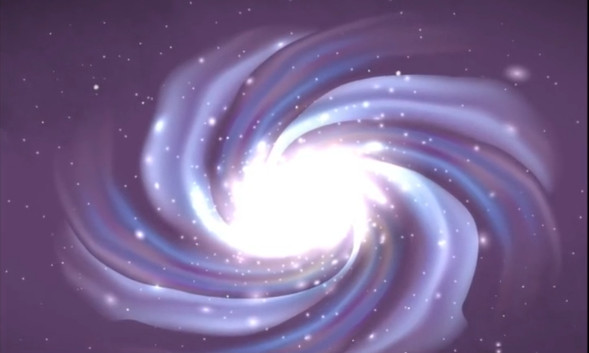Simulating the destruction of the universe
Everything has a beginning and an end, including our universe. But how does everything we know end and when does that happen?
Let's start from the area we know best: The Solar System.
After 1 billion years, the Sun will be 10% brighter than it is today. This will raise the temperature on the Earth's surface, causing the oceans to evaporate faster and destroy most of life on Earth. No one can survive to see our next big show in the next 4-5 billion years.
Right now, the Milky Way is being drawn into gravity with the nearby galaxy named Andromeda. The two galaxies rushed toward each other at a speed of 402,000 km / h and will crash into each other for nearly 5 billion years.
Astronomers predict our Solar System will remain intact when these two "giants" fight each other.
After 5-8 billion years, the Sun nuclear reactor will undergo sudden changes, making it expand to its maximum size, swallowing Mercury, Venus and even the Earth.

The Sun is not the only thing expanding, the whole universe will be the same.
But the Sun is not the only thing expanding, the whole universe will be the same, and that expansion is happening faster and faster. If expansion continues to accelerate, within 100 billion years, the distance between galaxies will be so great, light from distant galaxies will not reach us. We will not be able to see or study any galaxy outside of our neighboring cosmic region, calling the local group.
Local groups are a collection of about 50 galaxies bound together by gravity. Over time, about 100-1000 billion years from now, all of these galaxies, including our galaxy, will merge into a galaxy. It is just one of billions of galaxies throughout the universe, unable to see or touch each other.
Gliding up to 100,000 billion years from now, we will enter the era of recession (Degenerate Era) , when all stars in the universe die, only the dark, cold cold remains.
Finally, after 10-100 billion billion years, these bodies will escape the gravitational pull of the galaxy or spin into the central black hole.
After 10 ^ 33 years, black holes will dominate our universe, opening a new era called the Era Black Hole Era , but that's not the end.
Finally, even black holes die. They gradually lose mass through a phenomenon named after. In about 10 ^ 100 years, the black hole will eventually evaporate into oblivion. After that time, the majority of astronomers agreed that the universe would continue to expand, cool and gradually lose energy in the process. After all, the universe will not have the energy to produce new planets or stars.
While this sad ending will become our future, there is another less likely outcome, which may come much sooner. That scenario is called "Big Rip". In which the mysterious force stretching our universe will become so strong that it will rip all the basic components of every atom in the universe into pieces.
Some astronomers estimate that this scenario may happen as soon as 1000 billion years later.
Whatever scenario occurs, the result is a universe without light or life.
- The 3 biggest hypotheses about the death of the universe
- 7 perspective of the destruction of the Earth
- Our universe can be destroyed because a very basic type of particle is in progress
- Before 'Big bang'
- Simulating the active heart in the human body
- Black holes escape the destruction of the galaxy
- Perspective of the destruction of the earth
- We live in the end of the universe
- Physics genius calculates when people disappear from Earth
- The atmosphere gradually disappears, the Earth will be as dry as Mars
- 'Confiscate' substance used to produce weapons of mass destruction
- The things you do every day will become very 'weird' when you are in the universe
 Van Allen's belt and evidence that the Apollo 11 mission to the Moon was myth
Van Allen's belt and evidence that the Apollo 11 mission to the Moon was myth The levels of civilization in the universe (Kardashev scale)
The levels of civilization in the universe (Kardashev scale) Today Mars, the sun and the Earth are aligned
Today Mars, the sun and the Earth are aligned The Amazon owner announced a secret plan to build a space base for thousands of people
The Amazon owner announced a secret plan to build a space base for thousands of people World's most powerful telescope captures something that threatens to upend cosmology
World's most powerful telescope captures something that threatens to upend cosmology  'Time-traveling assassin' 13 billion years ago kills an entire galaxy
'Time-traveling assassin' 13 billion years ago kills an entire galaxy  The mystery of human lifespan limits
The mystery of human lifespan limits  13 'alien' skulls next to Mayan pyramids
13 'alien' skulls next to Mayan pyramids  How long does it take to reach another star system besides the Solar System?
How long does it take to reach another star system besides the Solar System?  For the first time, 5 super-objects from 13.6 billion years ago have been revealed.
For the first time, 5 super-objects from 13.6 billion years ago have been revealed. 